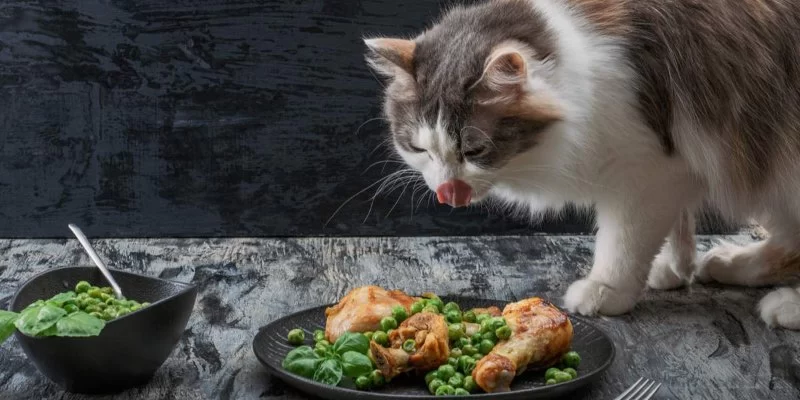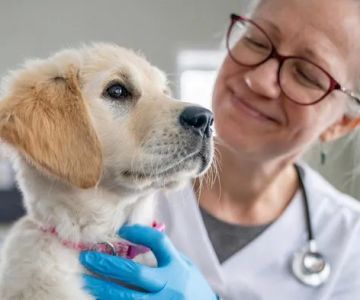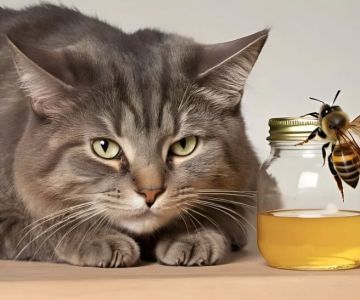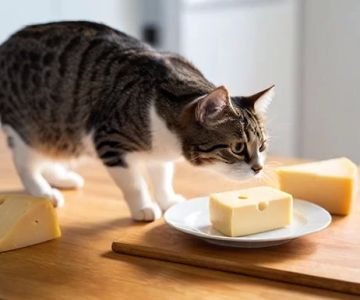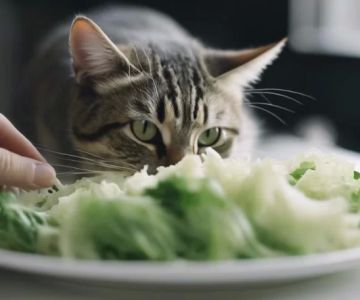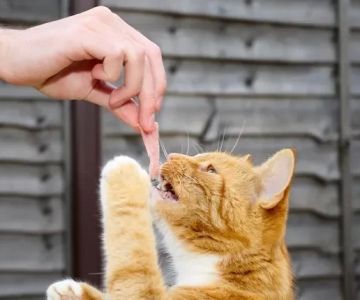- #can-cats-eat-turkey–understanding-the-basics
- #is-turkey-safe-for-cats–cooked-vs-raw-meat
- #how-to-feed-turkey-to-your-cat–safe-preparation-methods
- #real-life-cases–and-what-veterinarians-say-about-cats-eating-turkey
- #expert-tips–and-nutritional-advice-from-hidden-brook-veterinary
1. Can Cats Eat Turkey – Understanding the Basics
If you’ve ever caught your cat sniffing around the Thanksgiving table, you might have wondered, “Can cats eat turkey?” The short answer is yes—but with some important precautions. Turkey, in its pure form, is not only safe for cats but also highly nutritious. It’s a great source of lean protein that supports muscle health, energy, and overall vitality.
However, not all turkey is created equal. While plain, cooked turkey meat can be a healthy treat, processed or seasoned turkey—like deli slices, gravy-covered leftovers, or turkey with added salt and spices—can cause digestive upset or even toxicity in cats. At Hidden Brook Veterinary, we often remind pet owners that moderation and preparation make all the difference between a healthy snack and a vet visit.
2. Is Turkey Safe for Cats – Cooked vs. Raw Meat
Whether turkey is safe for your cat largely depends on how it’s prepared. Cooked, unseasoned turkey is generally safe for cats to eat in small portions. It should be free of bones, skin, and fatty parts, as these can cause choking, pancreatitis, or intestinal blockages.
Raw turkey, on the other hand, poses more risk. While cats are natural carnivores, raw poultry can contain harmful bacteria such as salmonella or listeria. In some cases, cats may not show immediate symptoms but could still become carriers of these pathogens, potentially spreading them to humans in the household.
To keep things safe, always cook turkey to an internal temperature of at least 165°F (74°C). Avoid adding butter, oil, garlic, or onions—these ingredients are toxic to cats. Even a small amount of garlic or onion powder can cause anemia over time. If you’re unsure how to prepare cat-safe turkey, experts at Hidden Brook Veterinary recommend boiling or baking it plain, then chopping it into small, bite-sized pieces.
3. How to Feed Turkey to Your Cat – Safe Preparation Methods
Feeding turkey to your cat can be a fun way to add variety to their diet, but it should always be done responsibly. Here’s a practical, vet-approved approach:
Step 1: Remove the skin, fat, and bones before cooking. Turkey bones, especially cooked ones, can splinter and cause internal injuries.
Step 2: Bake, boil, or steam the turkey without any salt, oil, or spices.
Step 3: Let it cool, then cut it into tiny pieces suitable for your cat’s size.
Step 4: Serve it as an occasional treat—not a meal replacement.
A typical serving size is about a teaspoon or two of plain turkey meat for an average adult cat. Some cats may enjoy the taste so much that they start begging for more, but overfeeding can upset their stomach or unbalance their diet. Cats require specific nutrients like taurine, which are found in complete cat foods but not necessarily in turkey alone.
If your cat has never eaten turkey before, start with a small portion and watch for any signs of digestive issues such as vomiting, diarrhea, or lethargy. Should any symptoms occur, contact your vet promptly for advice.
4. Real-Life Cases – And What Veterinarians Say About Cats Eating Turkey
A common holiday story shared among veterinarians involves well-meaning pet owners who slip their cats a bit too much turkey during Thanksgiving dinner. One example from a Hidden Brook Veterinary patient involved a cat named Milo who indulged in seasoned turkey leftovers covered in gravy. The next day, Milo suffered from stomach upset and dehydration. After a vet visit and hydration therapy, he made a full recovery—but the incident was a reminder that “human food” isn’t always pet-safe.
Veterinarians emphasize that while turkey is an excellent protein source, it should complement—not replace—a nutritionally balanced cat diet. Small, plain servings can be beneficial, especially for cats recovering from illness or needing extra protein under medical supervision. But excessive feeding or fatty parts can lead to pancreatitis, obesity, or digestive distress.
Real-world cases like these highlight the importance of mindful feeding. Always consider your cat’s age, health, and dietary needs before introducing new foods, even ones that seem harmless.
5. Expert Tips and Nutritional Advice from Hidden Brook Veterinary
If you’re planning to share turkey with your feline friend, keep these professional tips in mind:
– Stick to small, occasional servings.
– Never season or flavor the turkey—plain is best.
– Avoid bones and fatty skin.
– Store leftovers properly to prevent bacterial growth.
– Always consult your vet before adding new foods to your cat’s diet.
At Hidden Brook Veterinary, we often remind cat owners that simple, natural ingredients like plain turkey can be part of a healthy, happy lifestyle when handled responsibly. Whether it’s a holiday treat or a small addition to their weekly diet, moderation is key.
So, can cats eat turkey? Absolutely—but preparation and portion size make all the difference. With the right approach, you can safely share this delicious protein with your furry friend and keep their tail wagging (or rather, purring) in delight.

